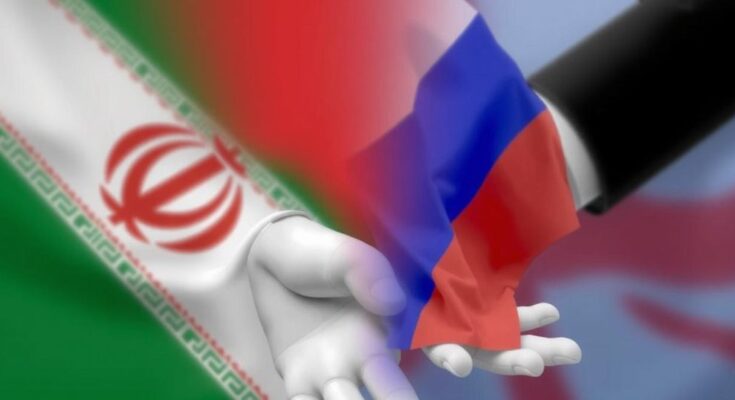Iran and Russia are preparing to sign a comprehensive strategic partnership treaty, highlighting growing military and economic ties amidst Western sanctions. The treaty is focused on defense cooperation and is expected to enhance collaboration in various sectors. This development follows mutual concerns regarding US and EU sanctions and ongoing geopolitical challenges in the region.
Iran and Russia are set to sign a comprehensive strategic partnership treaty, indicating a significant strengthening of their bilateral relations. This treaty, scheduled for Friday during Iranian President Masoud Pezeshkian’s official visit to Moscow, is primarily focused on defense and security collaboration. The two nations, often criticized by the West, have increasingly cooperated in various fields, particularly amid the ongoing tensions stemming from the Ukraine conflict.
The Kremlin highlighted that during this meeting, President Vladimir Putin and President Pezeshkian will discuss expanding cooperation in trade, logistics, and humanitarian efforts, alongside defense strategies. Iran has been supplying Russia with military drones, particularly the ‘Shahed’ kamikaze drones, which are currently being utilized against Ukrainian forces. Moreover, Iran is reportedly establishing a UAV production facility in Russia, signifying deeper military ties.
This treaty also comes at a critical time for Iran, which aims to bolster its national sovereignty amid ongoing sanctions imposed by the US and the EU due to the conflict in Ukraine. Iranian officials have reiterated that maintaining independence is paramount, as mentioned by Jalali in an interview, emphasizing the sacrifice made over decades to achieve national sovereignty.
The geopolitical landscape is shifting, particularly following the recent destabilization of Syria, an ally to both nations, which has further influenced their strategies in the region. Both countries are wary of potential Western interference, particularly regarding the transfer of ballistic missiles. Although reports suggest this may have occurred, definitive evidence remains elusive.
The Iran-Russia treaty is contextualized within the broader geopolitical tensions between these states and the Western bloc, particularly over the conflict in Ukraine. Following the escalation of this conflict, relations between Iran and Russia have intensified, driven by mutual interests against perceived Western hegemony. The sanctions imposed on both nations have reinforced their need for strategic alliances to safeguard their independence and bolster military capacities. The deterioration of support in Syria has also impacted regional dynamics, prompting both nations to seek deeper cooperation.
The anticipated Iran-Russia strategic partnership treaty marks a significant development in international relations, emphasizing the countries’ commitment to each other amidst increasing Western pressures. With a focus on defense, economic collaboration, and humanitarian efforts, this agreement may reshape regional alliances and responses to global geopolitical challenges. Moreover, Iran’s continuing push for sovereignty and self-reliance suggests a steadfast resolve to navigate international sanctions and pressures strategically.
Original Source: oilprice.com




